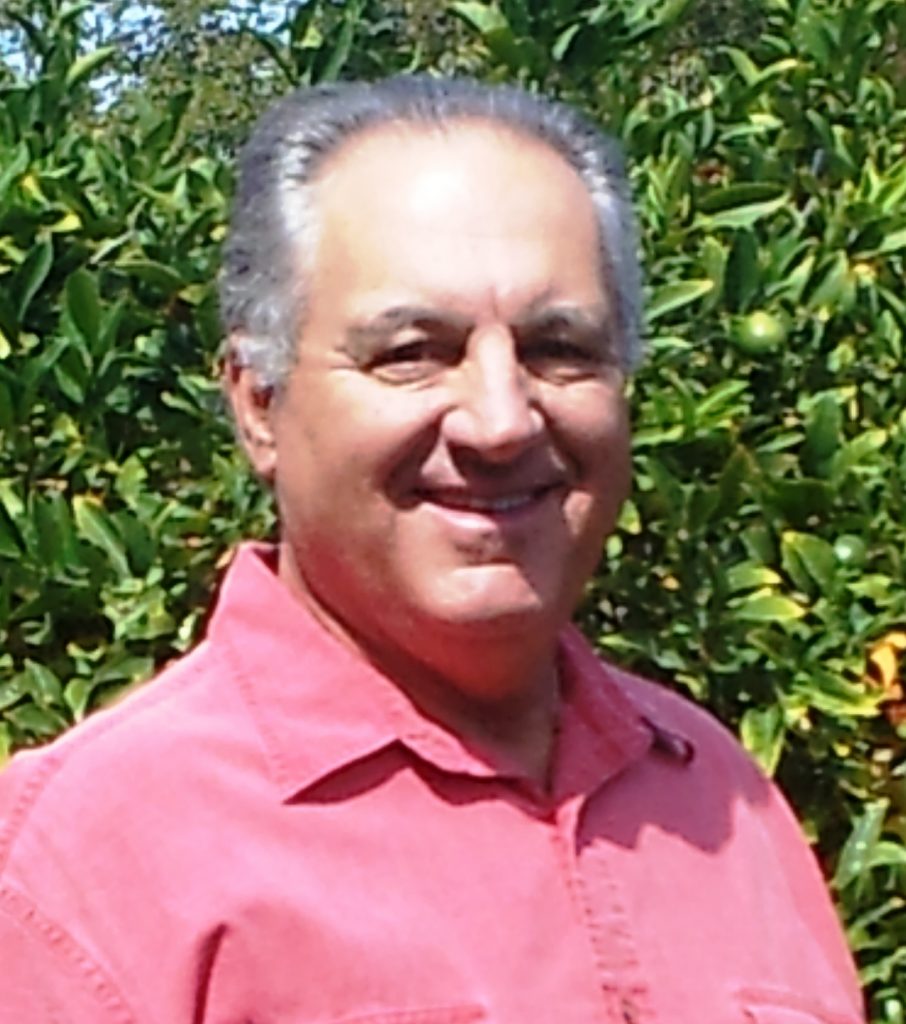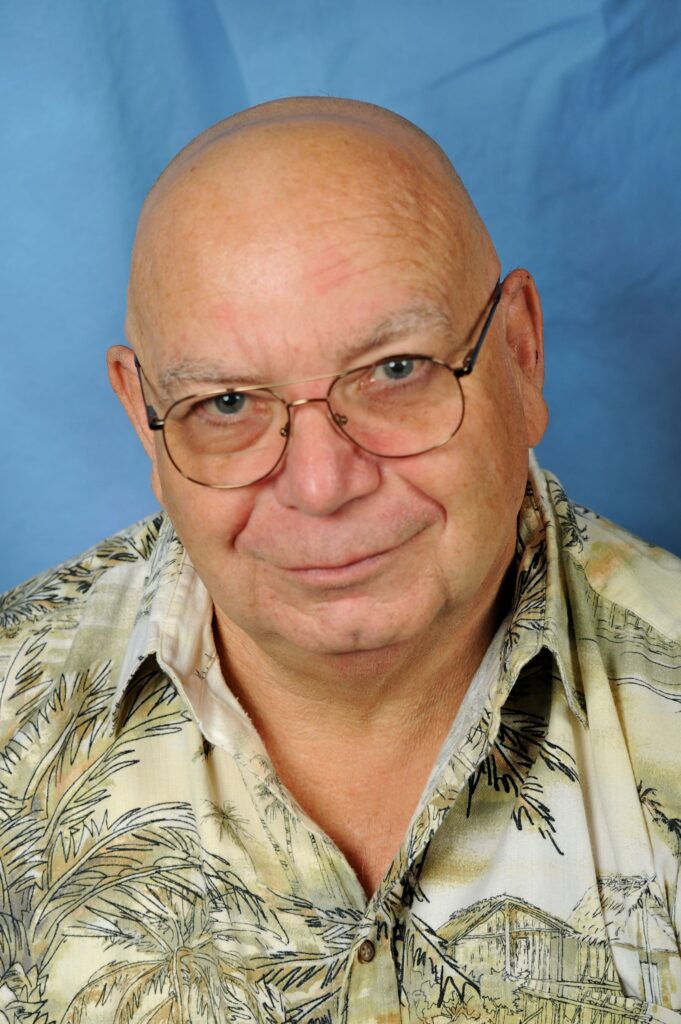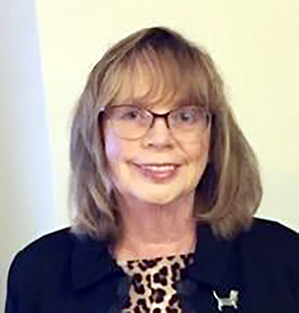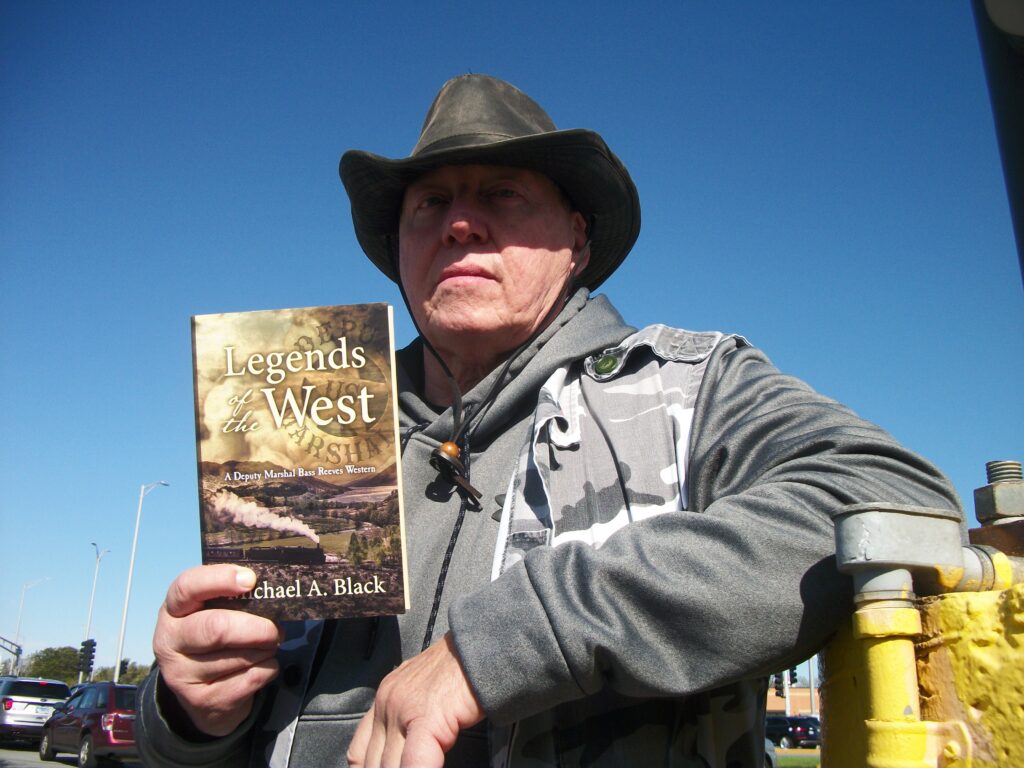PRESIDENT’S MESSAGE
The holiday season is upon us, and I hope you all are well, writing, and enjoying yourselves.
I always enjoy hearing the announcements that our members are releasing new books and receiving deserved awards for their efforts. It just keeps reminding me of how talented you all are! My congratulations to all the award winners in the 2021 PSWA Writing Competition, other competitions, and to all who have released new books this year, or had their works selected for inclusion in an anthology. Also, I am amazed at how useful the PSWA group email is (Listserve). I’ve read many requests for information or help and saw the quick and knowledgeable multiple replies. What a great resource. I have benefitted from it several times, and found the replies were always spot on!
The Board has selected the dates for our mid-year meeting—Feb. 23 and 24 2022 at the Orleans Hotel in Las Vegas. We have a lot on our agenda this year, along with the usual considerations—updating the website to make it more appealing, deciding if there are any changes we need to consider after the last one, and what needs to be done to improve our marketing of the organization, for example. Any suggestions you have are welcome, so please, let any of the board members know your thoughts. We also have tentative dates for the 2022 conference, at the Orleans, and that info will be announced when the dates are finalized.
On a personal note, I am pleased, and proud, to say my latest book, “The List”, was released a few months ago, and that it won the 2021 PSWA 1st place award for fiction books. (I know- this announcement was on Facebook in July, but I’m just so thrilled with the award!). As for my current WIP, I am 58,000 words into the next Vince Torelli book, tentatively titled “Southern Justness,” and, yes, justness is a real word!
I hope you all have a very Happy Thanksgiving, and a Merry, Merry, Christmas. I hope to see you all at the 2022 conference! Stay healthy, get vaccinated, wear your mask when necessary, and keep writing!
–John Schembra
PSWA President
PLANNING FOR A SAFE HOLIDAY SEASON
The Christmas season is upon us and the economy is in the tank. When I was a cop, we used to say that a bad economy was job security for us. However, for the general public and police officers and their families, this is also the season to become a victim. A few thoughts from an old crime prevention officer come to mind to make the holidays happier and safer for you and your families.
When going to the mall to shop during the Christmas season, if the mall provides a parking valet – use it. Don’t walk across a crowded parking lot with arms full of bags and packages. Let the valet go out and bring your car curbside for you to load with your purchases near the door of the mall. The few extra dollars you spend paying and tipping the valet will pay bigger dividends for the holidays than life insurance or medical insurance policies.
If you must walk across the parking lot, shop with a companion so you are not alone. If you must walk alone, keep your cell phone in your coat pocket so it is easily accessible if you need to dial 911. If your car has an alarm system, keep the keys in your hand so you can press the alarm button and sound your car alarm if approached by a suspicious person. Also, walk with your car keys points protruding between your fingers. If attacked you can use these to scratch, poke, and yes, stab the attacker about the face.
Once you are done shopping and are in your automobile, make sure you lock your doors for the ride home. From a well-lighted part of the mall, use your cell phone to call home so family members know when to expect you.
If you need cash from an ATM, do not go alone – even if it is a drive-up ATM. Have your passenger keep surveying the area, to make sure you are not being approached by someone intent on robbing you. If a person does approach you, leave the area immediately. If you have an automobile alarm system, hit that red button and sound that alarm to scare him away and call passerby attention to your dangerous situation.
Make sure you get your receipts and your credit cards back after making each purchase. Keep track of purchases and check them against your incoming bills to make sure no one has obtained your credit card number and made purchases against your account.
Here’s hoping you have a safe, healthy, and happy Christmas and Chanukah.
–Keith Bettinger
PSWA Secretary
FROM THE WRITING COMPETITION CHAIR
Summer’s behind us and the holidays ahead. I love this time of year. It won’t be long until you start sending your entries for the 2022 PSWA Writing Competition. We’re making a couple of changes this year. I am excited about them.
One: We encourage sending in fiction entries in all genres, as long as there is a public safety tie-in. I’m looking forward to reading entries set in galaxies far, far away, and in fantasy, lands where dragons and magic dwell, and writing for all age groups, from children’s picture books to adult readers.
Another change is adding a new category, Flash Writing; fiction and non-fiction, 500 words or less.
I’ve also heard from our non-published fiction book judges they want your entries in e-format. We will send them out via email attachments.
I’d like to see us go this way for all the entries except published books. It’s much less expensive, and we want to keep the entry fees down. As last year, all judging will be blind. The judges won’t find out who the winners are until you do.
It worked well last year going outside PSWA for judges for the published books, so I plan to do it again in 2022.
I encourage you to attend the conference and participate in our awards ceremony. I’d love to give you’re your award in person.
I’m looking forward to our board meeting in February. Our PSWA conference gets better every year.
So, I’m ready. January 1, 2022, is around the corner. Get those entries in. It’s stiff competition. When you receive an award for your writing, it’s something to be proud of.
–Barbara M Hodges
PSWA Writing Competition Chairperson
THE BEST OF THE BEST
As we’re approaching the final two months of the year, I figured it was time to reflect a bit. Thinking back to this time last year, we’d just come through the tumultuous Presidential Election of 2020 and the summer of riots and discontent. And we were cautiously optimistic that the 2021 PSWA Conference would become a reality. We now know that it was a resounding success, despite the slightly lower than average attendance and a flurry of last-minute cancellations. Some were worried about the event, and that it might be a “super-spreader” for the COVID virus. Others, including me, were not worried. Who can forget Marilyn Meredith’s cogent advice: “All we need is a little faith?”
The mask mandate had, at the time of the conference, been suspended and it appeared that we, as a nation, were getting back to normal. Although we had masks available for the attendees, no one wore any during the conference. We talked, we laughed, we sat next to each other, and we all had a great time. Ironically, about a week or so after the conference, the mask mandate was reinstated in Vegas We slid in just under the wire.
But let’s try and look forward, okay?
I’m in the process of setting up the program for 2022 and hope everyone will go the extra yard and sign up early. I’ve recently attended a pulp con this past September and I’m on a panel for a sci fi con this month (November 14th). I can tell you that neither conference can hold a candle to the PSWA Conference, even the Windy Con (the sci fi one) where people tend to dress in outlandish costumes and act in outrageous fashion. The PSWA Conference is undoubtedly the best of the best. It’s one of the most affordable, too.
As always, I’m eager to make each PSWA conference the best it can be. Last time many of the attendees filled out the conference survey we posted, and the board always looks at those very carefully. If you have any ideas, suggestions, preferences, etc. please let me know. My email is DocAtlas108@aol.com. This goes for the suggestions for the writer’s workshop as well. The last workshop was one of the best we’ve ever had, despite the unfortunate loss of Susan Tuttle, who was set to be one of the instructors. I’m always glad to hear from any of you.
It’s been another busy year for me. I just finished writing my fourth novel of this year. It has a November 15th deadline and I was feeling the pressure. Last year, during the pandemic, I managed to crank out five novels. This year, with things opening back up a little more, I had to cut back to just four. I also did a couple of short stories and some articles as well. I have a short story started that I began at the workshop in 2019. I hope to blow the dust off of it and finish it before December 31st. That way I can hopefully start a new one in the writer’s workshop at the 2022 conference.
So anyway, if you’re thinking about signing up, please do so. We should have the application form and the information about the conference posted on the website shortly. In the meantime, keep your powder dry, and stay strong.
–Michael A. Black
PSWA Program Chair
FROM THE NEWSLETTER CHAIR

Thank you to everyone who submitted articles and member news. As always, we have wonderful contributions and a wealth of information. Our next newsletter will be published at the end of February 2022 after the board meets. I would like to wish everyone Happy and Safe Holidays this season.
–Kelli Peacock
PSWA Newsletter Chair
ENCOURAGING THE WRITER WITH YOU!
“A novel’s opening line may look like
the description of a character or a setting of the scene,
but it is in reality an attempt at seduction.”
From staying on track to not giving up or giving in, from not listening to negative voices, including your own, the purpose of this presentation and discussion is to encourage you to stay determined, confident, courageous, hopeful, inspired and motivated with respect to your writing. We’ll talk some of what can inhibit and interfere with writing goals and how to move past them.
Over the many years of consulting with authors, teaching writing classes, giving writing workshops and speaking at writers’ conferences and meetings, I have learned (unless one is a best-selling author) that there are times, it’s possible to be discouraged, unsure and wondering why you’re even bothering. But your soul cannot and does not really want to give up. So, write on, tell the negative voice in your head and from others to go away!
.
Each writer needs the promise of possibility and hopefulness that their dreams and ambitions can be fulfilled.
Important to have curiosity and use your imagination
In this presentation and discussion, we’ll cover:
Having your voice heard during this pandemic!
Knowing you have the right to be a writer
Perseverance
Trusting your own voice
Dealing with and ignoring negative voices
Planning, preparing, pushing forwarding
Motivation and staying motivated
Setting a writing schedule or routine
Setting deadlines for yourself
Avoiding distractions and distracting people
Being comfortable with the plans for your work and your ideas on issues such as dialogue, character development, point of view, tone and of course your storyline.
Personal patterns that can inhibit and interfere:
Practical issues and concerns
Finding time. Making time to write
Having the right space
Dealing with money concerns
Having to also do other work
Emotional issues/concerns that can inhibit and interfere:
Procrastinating and other bad habits (being unorganized, etc. what are yours?)
Relationships/family
(Imposter Syndrome) Feeling a fake, feeling you have no right to spend time on writing…or dealing with those who try to make you feel that way
Staying positive about yourself and your work…
Dealing with success…trusting you deserve it
Understanding fear of failure
Importance of support and resources:
Being involved in writing groups
Becoming involved in writers’ organizations
Participating in GOOD critique groups, writing workshops/classes/presentations
Keeping up on what is happening in the publishing industry
A few good writing books we’ll talk about
And, finally, remembering to…
Keep up your Confidence, Courage, Convictions, Instincts and Determination!
–Marcia Rosen
www.MarciaRosen.com
MarciagRosen@gmail.com
KEEPING PROMISES
At a recent book/writing talk I was asked about the importance of keeping your promises to the readers.
It was a lovely evening, with wonderful hors d’oeuvres and drinks even – “egg creams.” I believe it is important for authors, when invited, to attend a discussion of their book. We write in solitude and, but for our editors and friends, we often don’t get the opportunity to hear what our readers thought about the story and details within the story. I learned a lot and was inspired by last night’s discussion. One of the general writing questions that came up was the idea that the author must keep his/her promises to the reader. And so, with that discussion fresh in mind, I will use Weepers (my novel) to illustrate points as the members of the Book Club did last evening. In Weepers I made four promises to my reader.
First, through foreshadowing I promised the coming of an event. For example, in chapter one, which takes place on Christmas Eve, 1951, Angelo, seven-years-old, asks his father why no one has stolen the three Christmas trees on the Journal American Newspaper loading platform. His father answers, “They belong to Uncle Nunzio.” Bang! 3 promises/foreshadowing — The reader has not yet met Nunzio but knows he should not be messed with; this is a bad neighborhood because even a child knows people steal Christmas trees; and there is a relationship between Angelo and “Uncle Nunzio,” and Angelo understands why no one took the trees. I make a check-off list of all my foreshadowing, as well as other promises, for my final draft review.
Second, through character development, I promised a change or some other action in one or more characters. For example, in chapter two, Angelo’s mother, Anna, tells Father Joe (her priest) that Angelo is changing and becoming more like the projects in which, they live. I now have an obligation to my reader to show that change to a reasonable degree and at a believable pace.
Third, through each major character, I promised a consistency that rings true. So, while in my first draft, “the end,” was a resolution for all main characters, such an ending would have been a betrayal to Angelo, Anna, and a couple of other characters. To make that ending ring true, I would have had to jump ahead by means of an epilogue (this is often done in books, on TV, Movies). I fear such an epilogue would have felt like a ploy to my reader. In addition, since Weepers is both a stand-alone novel, and the first in a series, I had to decide which sub-plots to wrap-up, and which ones to dangle in anticipation for future novels in the series.
And fourth, I promised the resolution of mysteries. Describing Weepers in 15-words I would say that an “NYPD cop killing in 1957 has unexpected ties to a young father’s disappearance in 1951.” So, here I must unravel the killing of a police officer, the disappearance of a young father, and the six-year link between them. I must do this with suspense, reasonable surprise, and intrigue. And at the same time, my reader must not feel cheated (no bolts of magic, dreams, etc.).
Finally, as I said above, Weepers is the first of a four-novel series, but I also want it to stand-alone. Therefore, some questions and foreshadowing remain. However, it is crucial that they are not detrimental to a free-standing story. As I said, I make a check-off list of my foreshadowing, as well as other promises, for my final draft review.
So that’s my two cents about the importance of keeping promises, not just in a mystery but in all genres.
–Nick Chiarkas
Author of Weepers
HOW CRIME SCENE INVESTIGATIONS REALLY WORK
While PSWA members know this stuff, you may appreciate the broad take on the subject by author and former U.S. Army forensic pathologist (and professional Santa) Bradley Harper at the recent Killer Nashville conference.
His opening analogy was an interesting digression with a distinguished pedigree. He said Aristotle maintained there are only three arguments: Blame, Values, and Choice. Fixing blame is what forensics tries to do and blame always relates to events that happened in the past tense. Values, he said, are always argued in the present tense (“we believe in…”), and choices are argued in the future tense. When two people are arguing, if one is using the past tense (blame), and the other is using present or future tense, they will never agree. This is a handy trick to remember next time you’re setting up a fictional confrontation!
Aristotle is old, but forensics is even older. Harper said it began in China about 3000 years ago when a murder occurred, with the assailant presumed to be part of a particular guard unit. The magistrate asked each guard member to lay his sword on a table. Then they waited. Before long, one and only one of the swords was covered with flies, attracted by the invisible traces of blood still present on the sword.
Fast-forward to 19th century France and the efforts of numerous men of science to bring scientific methods to the analysis and systematization of crime investigations. Advances in photography, fingerprinting, and the standardization of autopsy procedures elevated the field. These pioneers’ accomplishments soon found their way into literature, starting with Edgar Allan Poe’s detective, C. Auguste Dupin. And then there was Sherlock Holmes. In 1910, a devoted Holmes fan, Frenchman Edmond Locard, set up the world’s first crime lab. You’ll remember Locard as the man who developed the exchange principle: “every contact leaves a trace.”
So, what happens in an autopsy, the touchstones we may need to include in our fiction? Harper said the steps include verify the deceased’s identity (preferably with a thumbprint); take a full-body x-ray; make an external examination; U.S. pathologists use a Y incision and remove the top of the skull to reveal the internal organs and brain, any of which may be taken out for further analysis if necessary; analyze stomach contents, blood, urine, spinal fluid, the vitreous humor of the eye, etc.; and take lots of pictures throughout.
Read More:
The Three Basic Issues (from Thank You for Arguing)
The Virtual Autopsy – explore online!
The Exchange Principle
Autopsy: A Screenwriter’s Guide
The Nutshell Studies of Frances Glessner Lee
–Vicki Weisfeld
PREPARING FOR NANORIMO 2022: NATIONAL NOVEL WRITING MONTH
NaNoRiMo is an international phenomenon in the writing community in which entrants vow to write 50,000 words in the month of November. It sounds impossible. Yet, according to the NaNoWriMo website, they have over 798,000 active novelists and nearly 370,000 novels have been ‘completed’. I find different stats for “completion” rate.
You turn off your internal editor, and just smash your way through a beginning, middle, and end. Nobody else needs to see it. Anyone who reaches the honor-system word count of 50, 000 is declared a winner, and there are prizes. No dumping a half-completed novel in and using it as word count. The biggest prize you may win is a T-shirt and a glowing pride that you’ve written a terrible first draft that you have the leisure to polish.
You must be writing roughly 1700 words a day in the month of November to reach the goal. But you don’t do it alone. You have the NaNoRiMo website which is deep and rich with resources. And you know that out there, hundreds of thousands of people are struggling along with you in libraries, bookstores, and community centers.
Sorry, this arrives late for NaNoRiMo 2021, but you have all year ahead to prepare for next year.
Current novel By Accident Winner 3rd place, 2018 Best fiction (Book) from PSWA
Writing Craft eBook’s
Writing Your First Mystery is free on my website
Mar Preston is the author of 7 police whodunits and 6 writing craft books. In 2019 she upended a 50-year hiatus in California, 20 of it in Pine Mountain Club, and returned to her roots in Ottawa, Canada.
–Mar Preston
THE WORDS HAVE IT
Fellow writers, we are wordsmiths all. After reading Scott Decker’s article in the last newsletter, it got me thinking about how much I love words. Back in the day, when I was an undergrad, I had a collection of short stories that I wrote during my first creative writing class, and then some. I happened to show them to the teacher who was my mentor at the high school and he, in turn, showed me some of his.
“You’re just like me,” he told me. “You’re in love with words.”
Through the years, my fascination with language continued even after I gave up my idea of becoming an English teacher in favor of becoming a cop. (I had a three-year stint in the army in between as well.) I continued to write and eventually became published. It was a long struggle, and I got knocked down plenty of times, but I learned from the experience, picked myself up, and kept on writing. My love affair with words and language never faltered.
One of the most fascinating things to me about language is that it’s always changing and evolving. Take a look at the original Canterbury Tales, but Geoffrey Chaucer. The work was written at the tail end of the 14th Century. In college, the professor made us read and recite the original Middle English verses. I can still recite the beginning of the prologue:
Whan that Aprille with his shoures soote,
The droghte of March hath perced to the roote,
And bathed every veyne in swich licóur
Of which vertú engendred is the flour.
Or, if you prefer, the Modern English translation:
When April, with its sweet-smelling showers
Has pierced the drought of March to the root,
And bathed every vein in sweet liquor,
Of which virtue engendered is the flower.
One of the things I credit my prof, old Dr. Miller, with was pointing out how lusty and funny and profane old Geoffrey’s 24 little tales were. Some of them were so risqué that they appeared in Playboy magazine in the Ribald Tales section. (Okay, I’ll admit it. I used to read the magazine, but only for the articles.)
Now, as I said, language is always changing and evolving. Words assume new meanings and mutate. Back in the early 1970’s “bad” became “good,” among other things. “Say, bro, that’s one bad ride.” And who can forget Jim Croche’s “Bad, Bad Leroy Brown?” (He was the baddest man in the whole damn town.)
The computer age brought on more variations. I used to love to run when I was in training as a fighter or a cop, but I would also “run” license plates on the computer or a person’s name to see if they were “wanted.” Incidentally, the word “run” has something like 645 different variations if you check the dictionary. Poor old Sam Johnson and his biographer, Boswell … They’re probably spinning in their graves.
Languages often “steal” from one another too. Years ago, the French scholars were scandalized when “lu parking” became the standard reference for “parking lot.” And in English, the word “whiskey” is actually the combination of two Gaelic words, uisge (oosh-gay) and beatha (bay-ha). Put those in your shot glass and slam ’em down. And how about “quarantine.” We all know that one, right? The word existed long before the recent COVID pandemic. It came about in the 14th century during, you guessed it, a plague. Ships were required to stay in harbor for 40 days before passengers could be allowed to come ashore. (And you folks thought you had it bad on your last Carnival Cruise. In those days they didn’t have very good plumbing.)
I used to love using obscure words in some of my police reports, much to the chagrin of my supervisors. One time I mentioned a suspect’s “penchant for prevarication,” and in another I cited a victim’s apparent “eleemosynary intent.” Don’t you love those words? How about Petrichor? I could be mean and tell you to go look it up, but I won’t. It’s something we’re all familiar with the smell of freshly fallen rain, which is actually a combination of ozone and geosmin, which is released from the soil.
Been to Starbucks or Dunkin’ Donuts lately for a cappuccino? Think it got its name from the color similarity to the rich brown hoods those monks in the old country wore? The word actually comes from the Italian word, cappuccino, which means “hood.”
And how about the longest word in the English language? Got any idea what it is? I’ll save you the trouble of paging through the dictionary trying to find it, or in this day and age asking Serrie or Alexa. The longest word in the English language is “pneumonoultramicroscopicsilicovolcanoconiosis.” Now go look that one up in your Funk and Wagnal’s. (Remember that old saying?) Or better yet just try to pronounce it with a mouth full of grapes.
Alas, our language has taken a lot of hits lately from the “woke” crowd claiming English is “offensive.” Those in the “pick your own pronouns club” have bullied some institutions of higher learning into creating a whole new set of “gender neutral” pronouns. For the life of me, I couldn’t tell you what they all are, nor do I have any interest in finding out. The urge to sanitize pronouns in the quest not to offend somebody—anybody, is as offensive to me as using horse urine in place of mouthwash. (I read somewhere that they used to do that in Roman times.) But getting back to my point, language is about communication, and anything that impedes this process is, in my opinion, a negative influence.
Let me give you an example. I was a judge in a short story competition last year and one of the authors kept using the plural pronouns, “they” and “their” in place of “his” or ‘her.” This added so much imprecision and confusion to the text that I gave up on reading the person’s story and eliminated it from consideration. My reaction was simple: how can this person consider himself a writer, a wordsmith, if he can’t tell the difference between singular and plural pronoun references?
Example: The figure in black took out their lasso and swung themselves onto the roof, landing on their feet with cat-like grace.
To use a popular text expression, WTF?
Now let’s take a look at the same sentence using those new gender-neutral pronouns.
Example #2: The figure in black took out zis lasso and swung zieself onto the roof, landing on zis feet with cat-like grace.
One thing’s for sure—Zis is zo ridiculous.
As I stated, language is about communication and making yourself understood, neither of which is accomplished by either of the aforementioned examples.
Language, though ever evolving and changing, is not sexist or racist. It can’t be. Banning the word “human” because the last syllable is M-A-N might bring some hypersensitive person to the brink of tears because it slights the female gender is not only ridiculous, but it undermines the richness of our language. Trying to bend over backward so as not to offend one small group or another can only lead to confusion and destroy the purpose and beauty of language itself. The essence of language is communication. I’m waiting for these moronic “guardians of inoffensivity” to go after the romance languages next. (Hey, did I just make up a new word?!!) Imagine the audacity of Spanish grammar specifying that a noun, like libro (book), requires the masculine definite article while casa (house) requires the feminine one. Are they implying that men read while a woman’s place is in the home? How dare they?!!!
(In case I wasn’t making myself clear, I was being facetious.)
Well, anyway, my rant aside, I wouldn’t be too worried about all of this, if I were you. How many of those new pronouns that the university was pushing can he average person name? And who’s gonna know what the hell these vigilant new student watchdogs are talking about once they graduate and go out into the real world? I can see them now, lurking in a library somewhere, pen and marker in hand, ready to pounce on a volume of the classics so they can blot out any words that they consider offensive. They’ll probably be organizing a book burning rally as the next step. Maybe they’ll be chanting, “It feels good to burn.”
It’ll be Ray Bradbury’s Fahrenheit 451 all over again, and this time it won’t be science fiction.
So beware, but also remember, whatever the changes that do or do not stick around, we’ll always have Chaucer.
–Michael A. Black
THEY WEREN’T BORN THAT WAY
As a police officer in Washington, D.C. for thirty-five years, I believe the problem with crime today revolves around crimes against children. Neither my department nor many other police departments, as well as the child welfare systems put enough emphasis on crimes against children. The overwhelming majority of criminals in prison and out were physically abused or neglected. I’m not talking about spankings or going to bed without their dinner. I’m talking about broken bones, sexual molestation or just a total disregard for them as human beings. These kids grow up feeling like no one cares about them, to the point where they don’t even care about themselves. With that kind of attitude, crime is just a way of life and prison a place to stay.
Don’t misunderstand me. To me abuse is no excuse for the crimes they may commit against people. If there had been some intervention in the beginning, when they were the victims of abuse or neglect as children, we would, more than likely, not be dealing with these criminals now. People need to be held accountable. There are laws on the books, in most states, which require health professionals, teachers, counselors, daycare workers, police, coaches, therapists and others to report to the proper authorities when they suspect a child is being abused or neglected. There are also laws on the books that prevent these reporters from being held libel. Yet, how many times have you read in the newspaper or seen on the TV news where a child was murdered or in need of medical attention because of abuse or neglect. Well, multiply that number by ten or more for the cases that go unreported. I’ve seen too many children, not with sad eyes or angry eyes, but with dead eyes. There was no feeling in them, no conscience, no love, no future. They weren’t born that way
What can we do about it? Be a good parent or Grandparent. Let your children know you love them and that you care about them. Support political candidates, school board members and Judges that put children’s welfare first. Support organizations that promote family values and that help children empower themselves through education and community service.
According to the website Childtrends.org, here are some statistics regarding child maltreatment compiled for the fiscal year October 1, 2018, to September 30, 2019. I chose three states that I believe have the largest populations. Childtrends obtained this data from the Federal National Child Abuse and Neglect Date System (NCANDS). The percentages presented in this data exceeds 100%, because some victims’ maltreatment fit into more than one category.
*** Note from RJ some of the below numbers and labels may not line up perfectly that is an issue with converting data tables from a Word Doc to a web editor and then also how your screen resolution is set up ***
The number of referrals of abuse or neglect:
California 403,920
Illinois 86,705
New York 163,917
U.S. total 3,994,016
Referrals that received an investigation or assessment:
California 343,126
Illinois 151,490
New York 216,016
U.S. total 3,476,034
The number of children found to be victims:
California 64,115
Illinois 33,331
New York 67,269
U.S. total 656,243
The percentage of victims by race:
California (59% Latin) (21% White) (14% Black) (3% Asian) (2% mixed)
Illinois (46% White) (33% Black) (18% Latin) (3% mixed) (1% Asian)
New York (34% White) (30% Latin) (29% Black) (5% mixed) (3% Asian)
The percentage of victims by age:
AGE (0 – 3) (4 – 7) (8 – 11) (12 – 15) (16 – 17)
California 34% 22% 20% 17% 7%
Illinois 34% 24% 21% 16% 5%
New York 27% 23% 22% 20% 7%
The percentage of the type of maltreatment:
California Illinois New York Total U.S. Neglect 89% 75% 96% 75%
Psychological 9% 6%
Physical 7% 18% 9% 18%
Sexual 5% 14% 3% 9%
Child deaths from maltreatment:
California 149
Illinois 106
New York 69
U.S. total 1809
The type of perpetrator:
California 87% Parent or relative
Illinois 79% Parent or relative
New York 84% Parent or relative
U.S. total 78% Parent or relative
Gender of the victims was 50/50 + or – 1%
–Joseph B. Haggerty Sr.
MEMBER NEWS
My new book, Oct. 6, by Aakenbaaken & Kent.
The fifth book in my Deputy Allred & Apache Officer Victor Series involves murder, missing persons, escaped delinquents, reservation crime, drugs, ambush of a deputy, and finds Sergeant Al Victor having to walk a thin line between Broken Earth, was released his role as a traditional medicine man and a law officer. Set in a background of county and reservation politics, Missing and Murdered Indigenous Women, and everyday police work, the action-filled story is a mix of suspense, Apache culture, and the contemporary west. Details at:
http://virgilalexander.weebly.com/
#
Keep an eye out for The Dutch Winter
Albert Vandesteeg was hoping to have a publishing date for “The Dutch Winter” but it has been put off till December or maybe January.
The story will grip your soul as you walk with Herve’ through the years of Nazi occupation of his father’s farm. The hunger and oppression is constant and the fear of death is an everyday experience.









